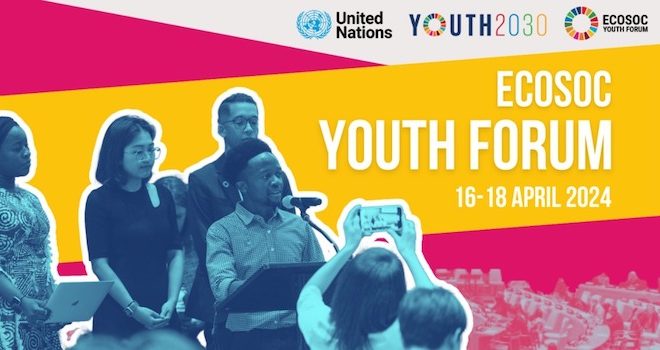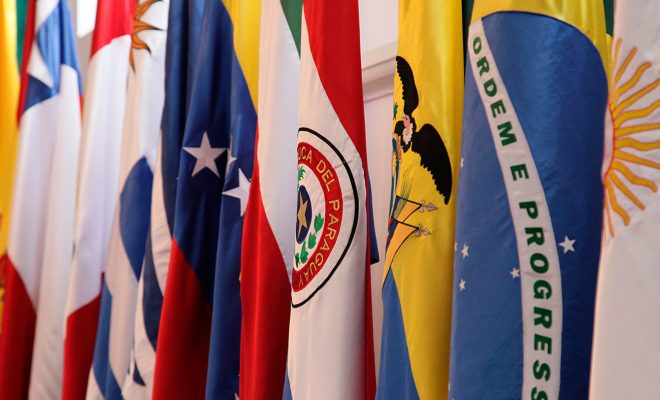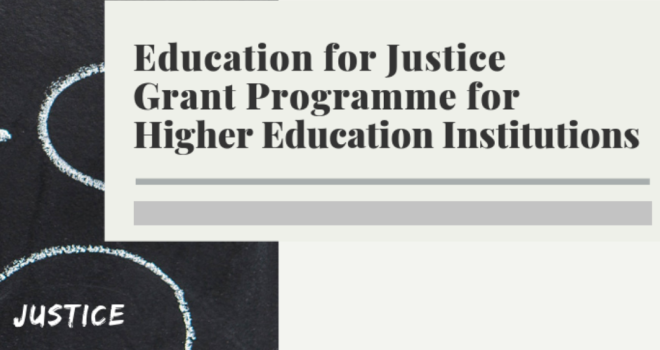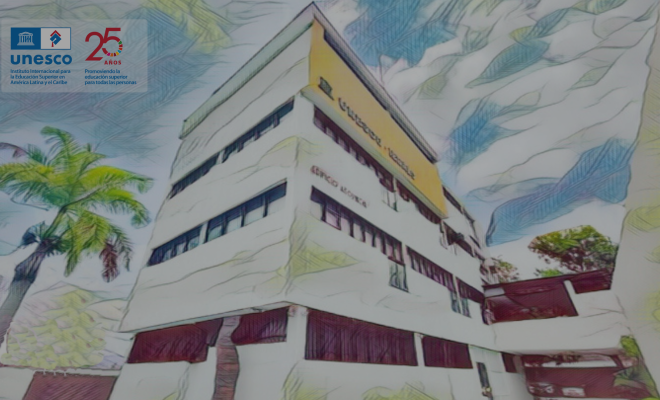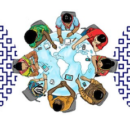IESALC Study on Quality and Accreditation opened the second session of the 2020 II International Forum on Quality Assurance in Higher Education
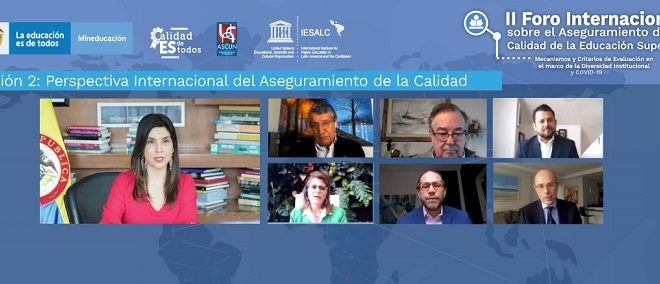
Quality Assurance and Accreditation Criteria in Higher Education. International Perspectives, title of a comparative study on the criteria for quality accreditation of higher education institutions and programmes developed by the UNESCO International Institute for Higher Education in Latin America and the Caribbean-IESALC, was the starting point for the analysis that took place on June 3rd in the framework of the second session of the 2020 II International Forum on Quality Assurance in Higher Education, convened by the Colombian Ministry of National Education.
“The study analyzes the trends and challenges in quality assurance policies for higher education, comparing 10 accreditation agencies located in North America, South America, the Asian Pacific and Europe, considering their governance frameworks, their relationship with the academic sector and the promotion of shared trust between the Institutions that make up the systems and that allow these advances to be channeled into student’s learning outcomes” stressed María Victoria Angulo González, Minister of Education, according to the Ministry’s website.
About 1,500 people participated in this virtual space organized with the support of UNESCO-IESALC, the Asociación Colombiana de Universidades ASCUN (Colombian Association of Universities) and the Comisión Permanente de la Calidad (Standing Committee on Quality) formed by the Consejo Nacional de Educación Superior CESU (National Council for Higher Education), the Consejo Nacional De Acreditación CNA (National Accreditation Council), the Comisión Nacional Intersectorial de Aseguramiento de la Calidad CONACES (National Intersectional Commission for Quality Assurance) and the Ministry of Education, to foster learning and the sharing of good practices related to the implementation of international public policies in higher education quality.
For the Minister of Education, both the UNESCO-IESALC study and the II Forum provide members of the Quality Assurance System of Colombia with the context of the objectives, processes and developments of the Education System and Institutions, in order to advance in research, extension and training topics, focused on the academic, socio-emotional and job insertion fronts.
Afterwards, Francesc Pedró, IESALC director, intervened with a detailed presentation of the report in which he talked about the creation of quality agencies during the eighties, among other reasons, due to the increase in student enrolment in the world. In order to meet this demand there was a proliferation of HEI, and thus the need to create quality assurance mechanisms.
In this context, the agencies are born as mediators of the State in the process of verifying the quality of the HE institutions and to govern policies in the search for quality. As a characteristic feature, Pedró points out the need for them to have independence from the State. “It is through quality assurance agencies that HEI can convey their demands and expectations to the State (…) The reality is that with their participation, the governance landscape for higher education has become complicated, but it has also allowed for an evolution in the quality of service provision by cleaning up the suppliers’ landscape,” he clarified.
Are quality agencies similar on a global scale? Where is the divergence and convergence? Are the accreditation criteria similar? To what extent, thanks to the intervention of the agencies’ international mechanisms, are we going to achieve convergence? These are some of the questions raised and developed around existing concerns about quality and accreditation as unifying mechanisms for public policies around the world. In this regard, Pedró stressed that the similarity between quality assurance and accreditation systems in institutions at a global level is not yet evident, mainly due to the configuration of each country’s HE systems. “The paradox is that there is a growing convergence of criteria in the educational programs (…) In this whole process it is worth asking who evaluates the evaluators? This involves international agencies,” he added.
He also stated that another concern is how to manage institutional diversity within national standards, one of the major challenges of unresolved quality assurance processes. “Nowadays we realize that the most useful thing is to help each of the HEI to improve their quality. We can no longer follow the idea that they should be adjusted to institutional standards, we have to contextualize the work of each institution and recognize that they are diverse.”
Colombia in the international framework
“I believe that the quality assurance system in Colombia is in transition because the operation of the sector, the agencies and the CNA, shows growing confidence on behalf of the State and the institutions.” This transition should aim at fewer regulations on the State’s part and a greater consensus on the agencies’ part”, he added in a dialogue with Colombia’s Vice Minister of Higher Education, Luis Fernando Pérez.
When asked about the challenges facing the higher education system in that country, he added that the fundamental criterion must be the search for quality in the students’ learning achievements. “The incorporation of achievements is based on the confidence that the information produced by the institution is received as reliable. Intuitively it is very important, but technically we have many challenges. I am pleased to congratulate Colombia for incorporating quality assurance into its education policies”, he concluded.
The representatives of Quality Assurance agencies, Alberto Dibbern, general director of the Iberoamerican System of Educational Quality (SIACES); Alejandro Miranda Ayala, President of the Iberoamerican Network for Quality Assurance in Higher Education (RIACES); Carlos Hernán González, member of the National Intersectional Commission for Quality Assurance (Conaces) of Colombia; Iván Enrique Ramos, coordinator of the National Accreditation Council (CNA) of Colombia; and Maritza Rendón, member of the National Council of Higher Education (Cesu) and moderator of two panels of exhibitors during the second session, also participated in the forums of the day.
The third session of the 2020 II International Forum on Quality Assurance in Higher Education will be held on Wednesday, June 10, at 8:00 a. m., and will have Quality Assurance Assessment Criteria as its central theme. It will count with the participation of regulatory agencies and organizations from different countries with a tradition and recognition in their Accreditation and Quality Assurance mechanisms. Vice-rectors and Quality Directors of Colombian Higher Education Institutions will also participate.
Photo courtesy of the Colombian Ministry of Education.
RELATED ITEMS

